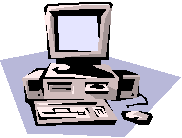|
While hacking is maybe a difficult thing to understand, in that it is a new crime, the word has not always been applied to criminal computer users. A hack journalist is an unprofessional. Hacker.com is a sports web site. A computer hacker used to mean someone who programmed computers until they worked, often with ad hoc techniques[22]. In some ways, hacker was analogous to 'amateur' but it was apparently also a compliment for professionals. In my life, hacking little holes out of punch cards was one way I used the word hack. Being a hacker on a road hockey team also left this term hacker in my vocabulary.
Steven Levy has written about personal computer pioneers as hacker heroes in his book Hackers: Heroes of the Computer Revolution[16]. These are the hacker ethics[10] he came up with:
- Access to computers should be unlimited and total.
- All information should be free.
- Mistrust authority - promote decentralization.
- Hackers should be judged by their hacking not bogus criteria such as degrees, age, race, or position.
- You create art and beauty on a computer,
- Computers can change your life for the better.
Computer ethicists have dealt with these ethical positions. With reference to the third, I should mention that the Canadian Green party supports decentralization and many protesters in the anti-nuclear movement in the past questioned authority[24]. In addition, to the third position the first two positions are also ethically troubling for the rest of society.
Information can not be free if we want to maintain the value of privacy[4]. Information is a product of labour, and thus should not be free because we need to reward labour.
Perhaps access should be free as stated in the first position. We could provide computers to all those who want them, but not provide access to others' computers. This would need to be justified as a Rule Utilitarian rule. This would also require wealth redistribution.
Hacking away at computers produces objects of value. In this sense, hacking is good thing to do. Producing value with computers is a good thing to do, even if done by amateurs or home users. Computers are not restricted to professional programmers. The empowering aspects of computers and relative ease of legal access in contemporary society is enough to show that points five and six of Levy's ethics can be applied.
|
|

